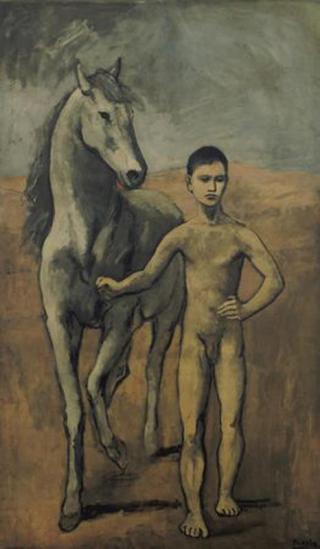Mendelssohn Heirs Claim for Picassos from MOMA and the Guggenheim
The Museum of Modern Art and the Solomon R. Guggenheim Foundation brought a lawsuit in 2008 in U.S. District Court in New York to determine the ownership of two Picasso paintings in the Museums and claimed by the heirs of Paul von Mendelssohn-Bartholdy. Preparatory to trial, U.S. District Judge Jed S. Rakoff ruled that German law applied to a transfer of art made in Germany in the 1930s, as was the case with these two paintings, and that it was for a jury to decide whether the transfer was void under German law because of duress imposed by the Nazi regime. He also ruled that the Museums might not be able to use a defense they raised that the heirs’ inaction was an unreasonable delay because the Museums may have been on notice when they acquired the paintings, that the art had been misappropriated.
The result of the trial had been expected to have great significance in so-called "forced sale" cases involving transfers of art in Germany in the 1930s because of Nazi or German government pressure, direct and indirect. However, an out-of-court settlement on the eve of the trial precluded any precedent-setting outcome.
We post here several documents in the case including the transcript of the February 2, 2009 settlement conference before the judge in which both sides discussed the settlement reached by the parties. Soon after, on March 23, Judge Rakoff issued a Memorandum Order concerning the parties’ confidentiality agreement to keep secret the terms of settlement. This has been covered by both The New York Times and Bloomberg News.
The ruling in the recent and closely related case of Schoeps v. State of Bavaria may however set the precedent for subsequent “forced sale” cases. The heirs of Paul von Mendelssohn-Bartholdy claim another Picasso was looted from their grand-uncle by forced sale and filed suit against the German State of Bavaria in federal court on 29 March 2013.
Bavaria refuses to return the painting despite the fact that this court ruled in Schoeps v. Museum of Modern Art that the claimants demonstrated Mendelssohn-Bartholdy “never intended to transfer any of his paintings and that he was forced to do so only because of threats and economic pressures by the Nazi government.”

Pablo Picasso, Boy with a Horse; Moulin de la Galette
Legal Papers
Citations
Court Rulings & Decisions
Press & Scholarly
Press & Scholarly
- Return of Painting Can't be Sought in NY, Judge Rules, Mark Hamblett, New York Law Journal, July 1, 2014
- Heirs Sue Bavaria for Nazi-Looted Picasso, Kevin Koeninger, Courthouse News Service, March 29, 2013
- Update: The heirs of the Jewish art collector Paul von Mendelssohn-Bartholdy want the return of Picasso�s Madame Soler from the Pinakothek der Moderne in Munich., November 2011
- Judge Slams Museums on Secret Agreement, Lindsay Pollock and Philip Boroff, Bloomberg News, June 18, 2009
- Heirs� Secrecy in Settlement Over Picassos Baffles Judge, Benjamin Weiser, The New York Times, March 24, 2009
Affiliated with the World Jewish Congress
Commission for Art Recovery, Inc. | © 2016 All Rights Reserved | Site Index
